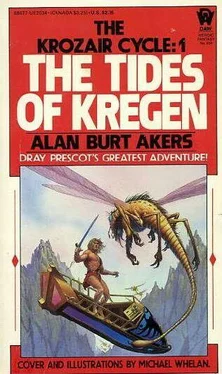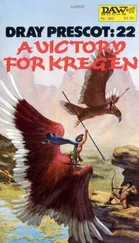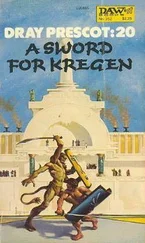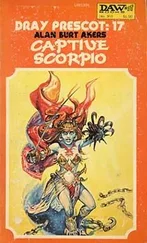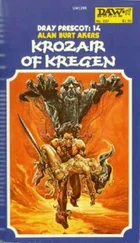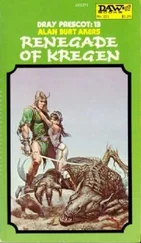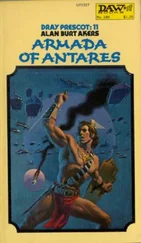Alan Akers - The Tides of Kregen
Здесь есть возможность читать онлайн «Alan Akers - The Tides of Kregen» весь текст электронной книги совершенно бесплатно (целиком полную версию без сокращений). В некоторых случаях можно слушать аудио, скачать через торрент в формате fb2 и присутствует краткое содержание. Жанр: Героическая фантастика, на английском языке. Описание произведения, (предисловие) а так же отзывы посетителей доступны на портале библиотеки ЛибКат.
- Название:The Tides of Kregen
- Автор:
- Жанр:
- Год:неизвестен
- ISBN:нет данных
- Рейтинг книги:4 / 5. Голосов: 1
-
Избранное:Добавить в избранное
- Отзывы:
-
Ваша оценка:
- 80
- 1
- 2
- 3
- 4
- 5
The Tides of Kregen: краткое содержание, описание и аннотация
Предлагаем к чтению аннотацию, описание, краткое содержание или предисловие (зависит от того, что написал сам автор книги «The Tides of Kregen»). Если вы не нашли необходимую информацию о книге — напишите в комментариях, мы постараемся отыскать её.
The Tides of Kregen — читать онлайн бесплатно полную книгу (весь текст) целиком
Ниже представлен текст книги, разбитый по страницам. Система сохранения места последней прочитанной страницы, позволяет с удобством читать онлайн бесплатно книгу «The Tides of Kregen», без необходимости каждый раз заново искать на чём Вы остановились. Поставьте закладку, и сможете в любой момент перейти на страницу, на которой закончили чтение.
Интервал:
Закладка:
If newspaper advertisements would help I would deluge the daily sheets with advertisements. This was the time I became involved with some of the more dubious aspects of Victorian science. As a trapped rat will turn and struggle against whatever opposes it so I struggled against invisible bonds. In the process I ran across weird people, ordinary human beings, and yet people possessed of some quirk of nature that led them to gather to themselves superior powers. Most of the time they were mere quacks, charlatans, impostors. Of Doctor Quinney, I had my doubts.
A thin, snuffly individual, blessed with a quantity of lank brown hair — hair that grew, it seemed, from every part of his face except his eyes — Doctor Quinney dressed in shiny black clothes, much worn, and a stovepipe hat elegantly blocked out after whoever it was had sat on it. His snuff blew everywhere. His eyes watered and gleamed with fanaticism; he claimed to know the Secrets of the Spheres.
"And I assure you, my dear sir" — his steel-rimmed pince-nez flashed in time to the pendulum motion of his head, the dramatic gestures of his gleaming-knuckled hands — "inthe Spheres like mystic gossamer balls lie the ultimate Secrets!"
I had taken chambers in a quiet London side street and the landlady, Mrs. Benton, was slowly growing accustomed to the procession of odd characters daily pulling the doorbell. As for my own clothes, they were unremarkable, simple English town clothes of sober cut and style. Doctor Quinney regarded me as a man who, also anxious to unravel the Secrets of the Spheres, happened most fortunately to be blessed with the wherewithal to satisfy that craving.
I tolerated him for what he might bring me, rather as a ponsho might be staked out for a leem.
"Listen to me, Doctor Quinney, and mark me well. I expect results from you. It might go very ill for you else." He started back and dropped his handkerchief. I know that he had seen in my face that awful mad glare marking a clansman of Segesthes, marking me, Dray Prescot, the Lord of Strombor.
Chapter Five
Now began a different period of my life on Earth. More and more I mixed with the learned men, the savants, the scientists and chemists, the philosophers and engineers. To speak the truth, many of the new discoveries daily amazing this Victorian world had been spoken of in Aphrasoe. Because of this I was able to hold my own in argument and debate.
When Charles Darwin and Alfred Wallace read their paper before the Linnean Society, I had been in India charging about with a saber and uselessly trying either to blot out all thought of Kregen or to imagine myself there as we battled. Many of the ideas expressed in The Origin of Species by Means of Natural Selection, Darwin’s book that appeared in the November of the following year, made me realize that people on Earth were capable of great things, despite their flaws, and that Aphrasoe was a place of logical human development.
One day, it seems to me, our selfish brawling Earth may turn into the paradise I still — despite all! -
believe the Swinging City to be. As you must be aware, since I speak to you in the seventies of the twentieth century and much has transpired over the past one hundred years on Kregen, I know much more now than I knew then. At the time of which I speak, though, I knew practically nothing. Nothing. The Savanti had their purposes, and I had surmised these were for the good of Kregen and for the dignity of humanity. As to the purposes of the Star Lords, I held hazy ideas, nebulous theories, but all was embittered by their ’treatment of me and my resentment against them for their aloof high-handedness.
When the Savapim who called himself Wolfgang had talked in Ruathytu of the problem of evolution changing the many different races set down on Kregen I had been able to talk with him and understand. Now Darwin, of Earth, was opening terrestrial eyes to this mutable genetic structure. My advertisements in search of a Savapim, an agent of the Savanti, here on Earth, proved fruitless. Doctor Quinney, filled with an excitable eagerness and blowing snuff everywhere, told me he had found a "wonderful and incredible new source of psychic powers."
Arrangements were made. I canceled a trip planned to take me to Vienna, for I found I had grown inordinately fond of the music of Johann Strauss, and thus thankfully missed the Seven Weeks War in which Prussia dealt with Austria and set herself on the course of German unification. There was another new emperor on Earth now, Kaiser Wilhelm I. The agonizing thought that my son was the grandson of an emperor, you may readily conceive, touched me with renewed longing. Every day, every single day, I longed for my Delia and for Kregen.
Before this meeting with the "new source of psychic powers" discovered by Doctor Quinney, I finally parted with Victorian scientists over many questions. They were working on the right lines, in many cases, for what they required. I had worked with chemists in stinking laboratories attempting to duplicate the gas used in the paol silver box, and had got nowhere. As to the minerals in the vaol box, simple nomenclature defeated even the first stumbling attempts. I made mental notes on rare earths and scarce minerals, trace elements as known at that time — a time of great expansion and, equally, a time of ludicrous conservatism among the ignorant — and came to the conclusion that Earth science held no help at all. I went ballooning and enjoyed it enormously, but a Kregen voller was out of any balloon’s league. And, into the bargain, my own experience as a sailor meant I already knew enough to sail my driveless fliers by means of the wind alone, as I have told you.
The date of the meeting was set. Doctor Quinney, canny old Quinney, kept his new protege secret. I could not blame him, for I knew of the intense professional jealousy animating the people of the mystic circles and their adherents. And then, out of nowhere, came a situation which presented me with a problem I felt a sense of humanity compelled me to solve.
In our little group, among a Grub Street scribbler, a civil servant connected with the sewers, I believe, and a prosperous leather merchant who had recently lost his wife, a certain lordling attended our meetings. This young lord — I do not give his name — seemed to me a revolting example of that chinless pop-eyed, insufferable scion of an ancient noble family gone to seed. He owed his title to the dubious bedtime antics of an ancestor who had been rewarded for her exertions by being created a countess, in the name of her complaisant husband, the first earl. The young lord possessed wealth, a vicious temper and a good eye with a gun. I spoke only the necessary civil words to him. For his part, it was quite clear that plain Mr. Prescot was mere dirt beneath his feet, like all the others who did not overshadow him in nobility. Without breeding, without a lineage, a man could never enter his world. I did not wish to. There were far more important things to be accomplished than spending idle days, vapidly admiring oneself among cronies, a parasite upon the nation.
One day my landlady’s daughter, young Mary Benton, wore a red and tear-swollen face as she tidied my chambers. I chided her and soon the whole story came out. It was sickeningly familiar. As I looked at Mary, a sweet, innocent creature who worked hard from crack of dawn until well into the night, and heard her broken words, her shame, and contrasted her life with the elegant, luxurious, feckless life of this lord and his cronies, I fancied I might assist her. Money, of course, was immediately forthcoming. Probably I would have left it at that. Mrs. Benton was grateful; I shushed her and Mary was packed off to reappear subsequently with a new sister or brother, niece or nephew. I would have done what I could and left it, but this young lord could not leave well alone. On a night before the meeting that, however much I considered Doctor Quinney to be a fraud, yet excited me with its possibilities, the young lord was boasting and laughing, elegantly waving his hand, his blue pop-eyes very bright, his pink tongue tip licking the spittle on his lips.
Читать дальшеИнтервал:
Закладка:
Похожие книги на «The Tides of Kregen»
Представляем Вашему вниманию похожие книги на «The Tides of Kregen» списком для выбора. Мы отобрали схожую по названию и смыслу литературу в надежде предоставить читателям больше вариантов отыскать новые, интересные, ещё непрочитанные произведения.
Обсуждение, отзывы о книге «The Tides of Kregen» и просто собственные мнения читателей. Оставьте ваши комментарии, напишите, что Вы думаете о произведении, его смысле или главных героях. Укажите что конкретно понравилось, а что нет, и почему Вы так считаете.
